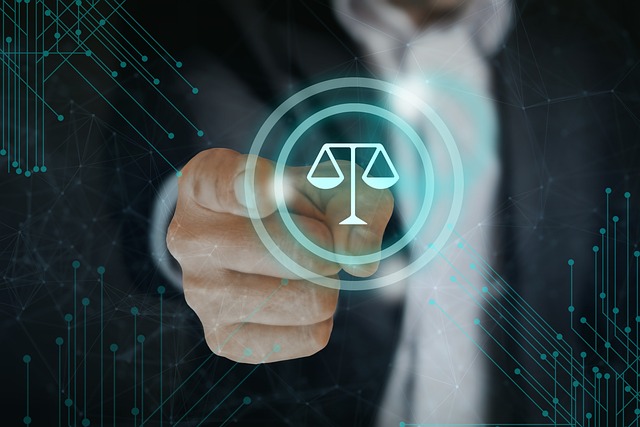The RF Securities Industry Regulation, overseen by various regulatory bodies, ensures fairness, transparency, and integrity in financial markets. Similar to Miranda Rights in criminal proceedings, these regulations protect investors from fraud, unfair practices, and misinformation. The Miranda Rights safeguard individuals involved in securities investigations, empowering them to remain silent and consult an attorney, with assertions potentially leading to charge dismissal if evidence is lacking without their statements. This holistic regulatory framework caters to diverse market participants, fostering trust, investor confidence, and sustainable industry growth. In recent years, the application of Miranda Rights in securities scandals has emerged as a significant legal strategy, adapting criminal defense strategies for fair treatment in financial investigations.
“Unveiling the intricacies of RF Securities Industry Regulation, this article offers a comprehensive guide. We explore key aspects, beginning with an overview of regulatory frameworks governing the dynamic realm of securities. Delving deeper, we scrutinize the pivotal role of Miranda Rights in financial crime investigations, highlighting their significance in criminal proceedings.
Furthermore, we analyze legal safeguards protecting market participants and the enforcement powers vested in regulatory bodies. Case studies illuminate practical applications of Miranda Rights in resolving high-profile securities scandals.”
- Understanding RF Securities Industry Regulation: An Overview
- The Role of Miranda Rights in Financial Crime Investigations
- Protections for Market Participants: Legal Safeguards
- Regulatory Bodies and Their Enforcement Powers
- Case Studies: Applying Miranda Rights in Securities Scandals
Understanding RF Securities Industry Regulation: An Overview

The RF Securities Industry Regulation is a complex web of laws and guidelines designed to maintain fairness, transparency, and integrity in the financial markets. It encompasses various regulatory bodies that oversee different aspects, from trading practices to investor protection. Understanding this regulation is crucial for participants in the securities industry, as it significantly impacts their operations and legal obligations. This framework ensures that market players adhere to ethical standards, promoting a healthy and robust investment environment.
Within this context, the Miranda Rights in Criminal Proceedings play a unique role. Similar to how these rights protect individuals in criminal justice, regulatory measures in the securities sector provide safeguards for investors. This includes protections against fraudulent activities, unfair practices, and misinformation. By ensuring a level playing field, regulators foster an ecosystem where winning challenging defense verdicts are based on merit rather than unethical advantages. The industry’s unprecedented track record in enforcing these regulations is a testament to its commitment to white-collar and economic crimes prevention, fostering trust among investors.
The Role of Miranda Rights in Financial Crime Investigations

In financial crime investigations, the Miranda Rights play a pivotal role as they ensure that individuals’ legal protections are upheld throughout criminal proceedings. These rights, originally established for ordinary criminal cases, provide suspects with their right to remain silent and to have an attorney present during questioning. This is crucial in the securities industry, where complex transactions and intricate financial networks can make it challenging to unravel potential fraud or misconduct. By invoking their Miranda Rights, individuals suspected of wrongdoing can avoid making statements that might later be used against them in court, thus preventing a possible indictment for charges they may not fully understand or agree with.
Understanding and exercising these rights are essential components of a general criminal defense strategy. They protect the rights of suspects to remain silent and to seek legal counsel, ensuring a fair process. In cases involving RF (radio frequency) securities transactions or other financial crimes, where the stakes can be high, knowing and asserting Miranda Rights can lead to a complete dismissal of all charges if the prosecution cannot establish a solid case without the suspect’s self-incriminating statements. This highlights the significance of legal counsel in financial crime investigations to navigate these rights effectively and avoid potential pitfalls that could impact the outcome of the case.
Protections for Market Participants: Legal Safeguards

In the realm of RF Securities Industry Regulation, protecting market participants is paramount. Legal safeguards, akin to the Miranda Rights in criminal proceedings, serve as a crucial pillar. These rights ensure that individuals involved in financial markets are informed of their legal protections and entitlements, fostering an environment of fairness and transparency. By mirroring the principles established in criminal law, regulatory bodies aim to uphold justice and maintain integrity within the industry.
Beyond these fundamental safeguards, the regulation also caters to the diverse needs of both corporate and individual clients, reflecting the intricate dynamics of the market. The supportive framework extends its reach to the philanthropic and political communities as well, demonstrating a holistic approach that prioritizes not just economic stability but also ethical conduct and social responsibility. This comprehensive strategy is instrumental in achieving extraordinary results—reinvigorating trust, enhancing investor confidence, and propelling the industry towards sustainable growth.
Regulatory Bodies and Their Enforcement Powers

The regulation of the securities industry is a complex web overseen by several key bodies across the country. These regulatory authorities are tasked with ensuring fair and transparent markets, protecting investors, and facilitating efficient capital formation. Each body possesses distinct enforcement powers, enabling them to investigate and penalize violations effectively.
These powers include the ability to conduct inspections, issue subpoenas, and impose sanctions such as fines or market suspensions. One crucial aspect that underscores these regulatory bodies’ effectiveness is their adherence to fundamental principles, including the Miranda Rights in criminal proceedings. By upholding these rights, they ensure that individuals are protected against self-incrimination throughout all stages of the investigative and enforcement process, contributing to achieving extraordinary results in maintaining the integrity of financial markets.
Case Studies: Applying Miranda Rights in Securities Scandals

In recent years, the application of Miranda Rights in securities scandals has emerged as a significant legal strategy. These rights, originally established in criminal proceedings, have proven valuable tools for protecting individuals involved in financial investigations. When suspects in securities fraud or insider trading are questioned by regulatory bodies or law enforcement, ensuring they understand their rights is crucial. This involves informing them that they have the right to remain silent and that anything they say can be used against them in a court of law.
Case studies illustrate how Miranda Rights play a dual role in securing justice. In some instances, adhering to these rights has led to the complete dismissal of all charges, demonstrating their significance throughout all stages of the investigative and enforcement process. The general criminal defense strategy has adapted to include these legal protections, ensuring that individuals accused of securities-related offenses receive fair treatment under the law.
The regulation of the RF securities industry is a multifaceted landscape, with legal protections and regulatory bodies working together to ensure fair markets. Understanding the intricacies of this system, including the application of Miranda Rights in financial crime investigations, is crucial for both regulators and market participants. By examining real-world case studies, we can see how these rights play a vital role in maintaining integrity within the industry. As the securities landscape continues to evolve, so too must our approaches to regulation, ensuring that legal safeguards keep pace with emerging threats.






